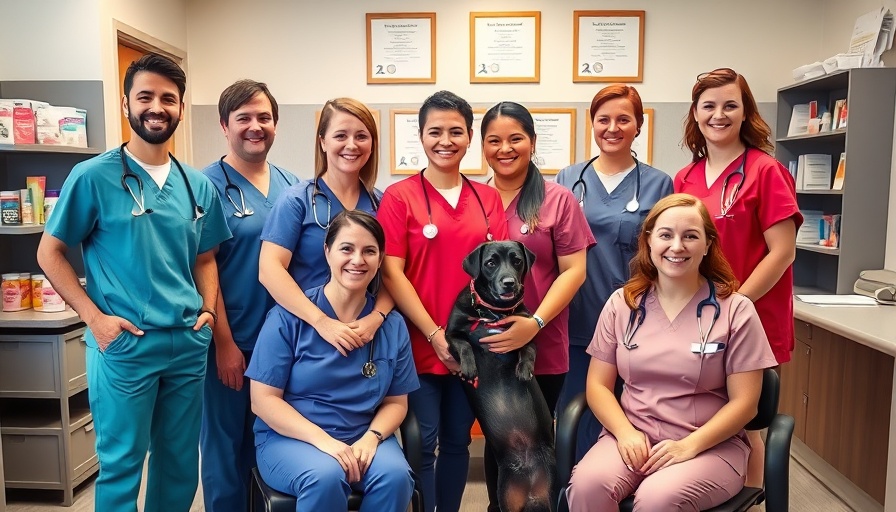
Understanding Treating Behaviors and Their Impact
Treating our furry friends can be an expression of love, but it can also lead to confusion about how much is too much. Research shows that dogs, like humans, can become overweight if their treats are not managed correctly. A brief menu of doggy delights might seem harmless, but it can add up quickly. Even a few little bites here and there can translate into significant calorie increases, so it’s essential to stay mindful of their overall daily intake.
Why Moderation Is Key
When it comes to spoiling our pets, moderation plays a critical role. Just as a balanced diet is vital for our health, the same is true for dogs. Experts recommend that treats should only comprise about 10% of their daily caloric intake. By calculating this carefully, you can avoid overfeeding and help prevent the onset of obesity-related conditions, like diabetes or joint pain.
Choosing the Right Dog Treats: Expert Recommendations
Not all treats are created equal. VCA veterinary technician Caylee Freels emphasizes the importance of checking ingredients. Seek out treats with reputable ingredients, aiming for those that feature dog-safe vegetables and fruits. For instance, carrots, apples, and even blueberries make for healthy, low-calorie options. It's also critical to avoid common ingredients that may upset your canine's stomach, such as artificial sweeteners, excessive salt, or harmful preservatives.
The Importance of Serving Size
Beyond nutritional value, the size of treats matters greatly. An oversized treat could pose a choking hazard for small breeds, while too-small options might not satisfy larger dogs. According to Dr. Kristen L. Nelson, a board-certified veterinarian, breaking larger treats into smaller doses can help regulate calorie intake without sacrificing enjoyment. This approach allows you to reward your pup without compromising their health.
Dog Treat Trends: Insights for Today
The market for high-quality dog treats has grown immensely, even offering specialized options aimed at maintaining dental hygiene, such as dental chews and sticks. It’s crucial, however, to choose products with a clear label stating their calorie count and nutritional adequacy. While many dog foods are regulated by the Association of American Feed Control Officials (AAFCO), the same does not apply to treats, making informed choices even more necessary.
Pet Owner Testimonials
To illustrate the importance of selecting appropriate treats, let’s consider what real-life pet owners are experiencing. Many have shifted to healthier alternatives that help maintain their dogs' health while keeping them happy. One owner, Sarah, shares her experience, "Switching to treats made from wholesome ingredients not only made my bulldog happier but also noticeably improved his energy levels!" This highlights how informed decisions can lead to happier, healthier pets.
Conclusion: Prioritize Your Dog's Health
Keeping your canine companion healthy and happy is a rewarding journey. By paying attention to treat quality, quantity, and nutrition, you ensure that your pets enjoy every bite while staying within safe limits. So the next time you reach for that treat bag, remember: it's not just about the love you show, but the health you promote.
 Add Row
Add Row  Add
Add 




Write A Comment